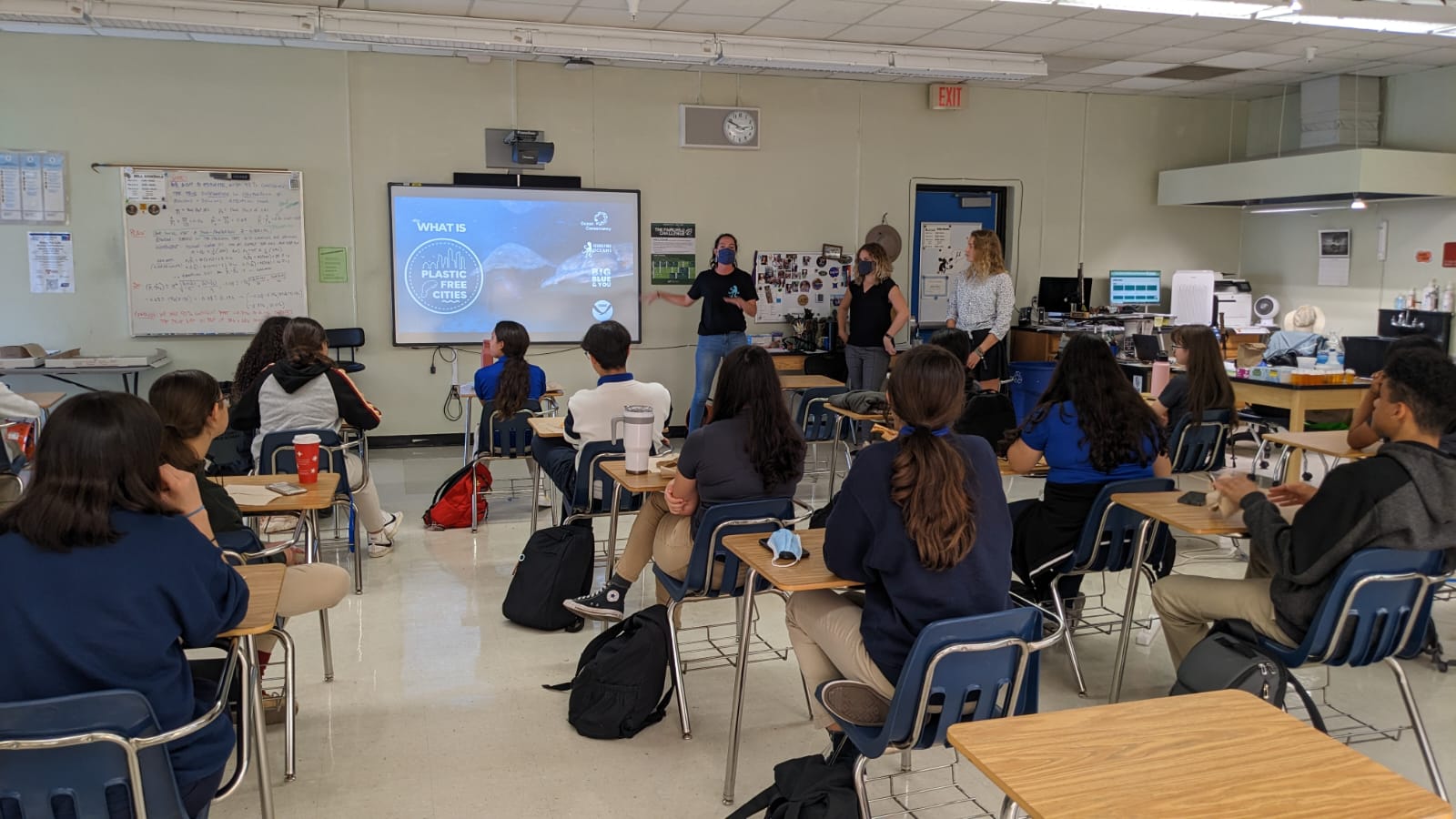Written by: Maddie Kaufman
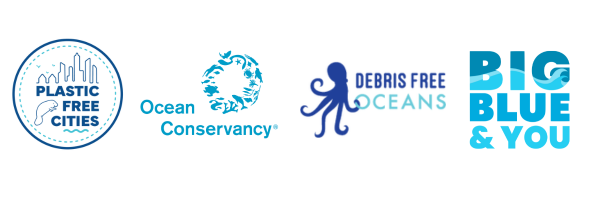
We are so excited to provide you all with an update on our ongoing #PlasticFreeCities program with Ocean Conservancy and Big Blue & You!
In case you missed it, last year we received funding from the NOAA Marine Debris Program to run a 2-year youth empowerment program known as Plastic Free Cities. This program involves training high school students from inland neighborhoods along the Miami River to become Junior Sustainability Consultants through a 5-part workshop series. After training, these students will visit local businesses, survey plastic use and waste management, provide recommendations on how to reduce single-use plastics, and register them for Miami-Dade County’s #PlasticFree305 program! Read about this epic project in full detail in our previous blog post.
Each semester we will be focusing on a specific neighborhood, and this semester we are kicking off the program in Hialeah! We are currently working with ~20 stellar students from Jose Marti Mast and 30 stellar students from Hialeah Senior High School. Shout out to our incredible teacher leads Dr. Andrew Kearns and Dr. Julissa Estrella who have made it possible to work with these two schools – we couldn’t do it without them.
Over the last few months we have been visiting both schools on a weekly basis to host educational, informative workshops, equipping them with the skills they need to engage the business community around their campuses in combatting plastic pollution.
Trainings
Training 1- All About Plastics
During Training 1 the students learned all about the history and prevalence of plastic pollution, and the harmful impacts of the entire lifecycle of single-use plastics from production, to use, to disposal. They broke out into small groups and used flip charts to brainstorm on these lifecycle impacts by categories including 1) wildlife, 2) climate change, 3) human health & social justice, and 4) the economy. At the end of the session the students filled out Plastic Free Cities pledge cards: they selected a few behavior changes that they would commit to in order to combat plastic pollution, and then wrote down the steps that they will take to achieve these commitments.
Some pledge highlights: 100% of students committed to carrying a reusable water bottle, 72% of students committed to buying local instead of ordering delivery, and 67% of students committed to talking to family about environmental issues.
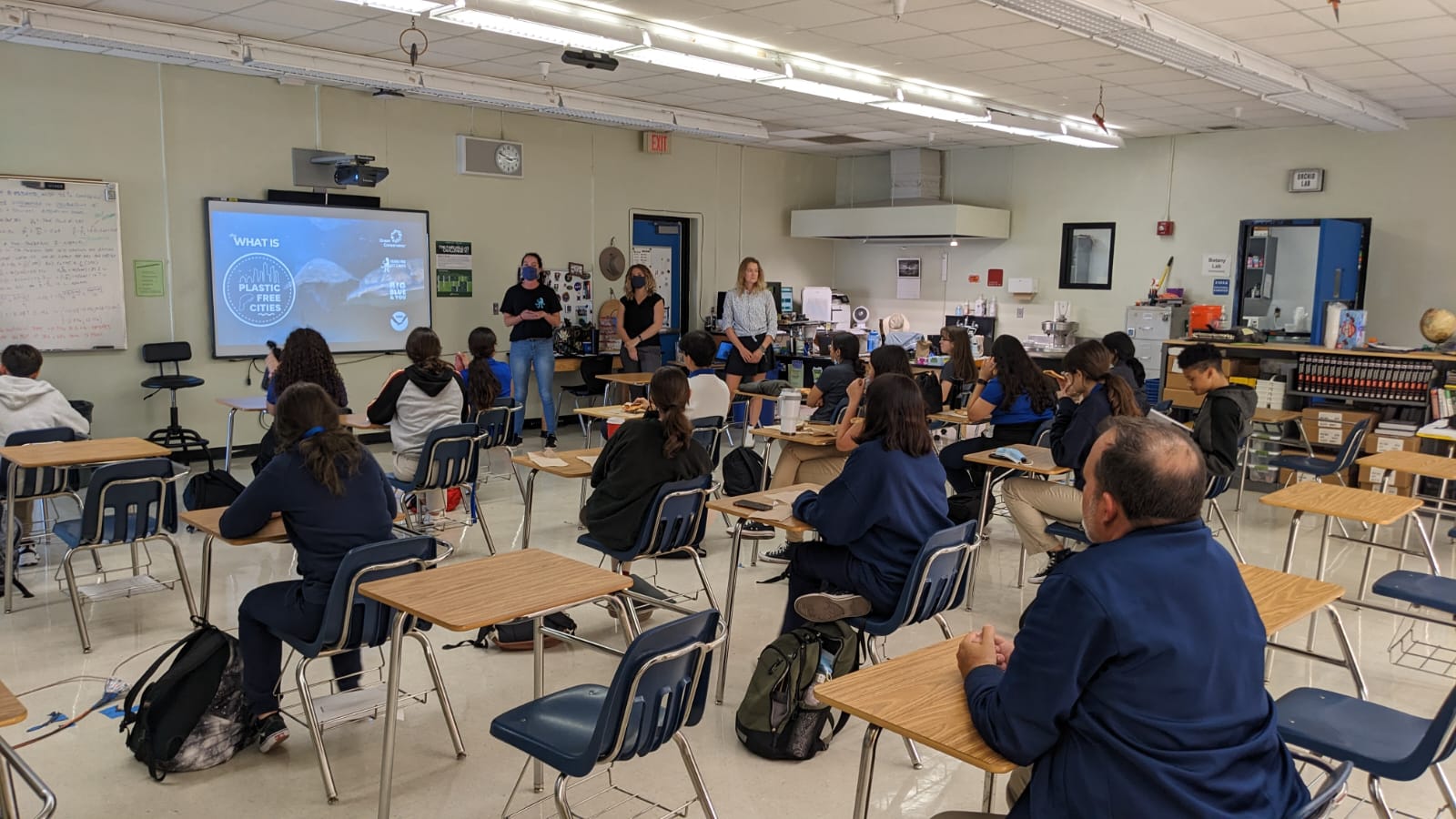
PFC facilitators from DFO, Ocean Conservancy, and Big Blue & You introducing themselves
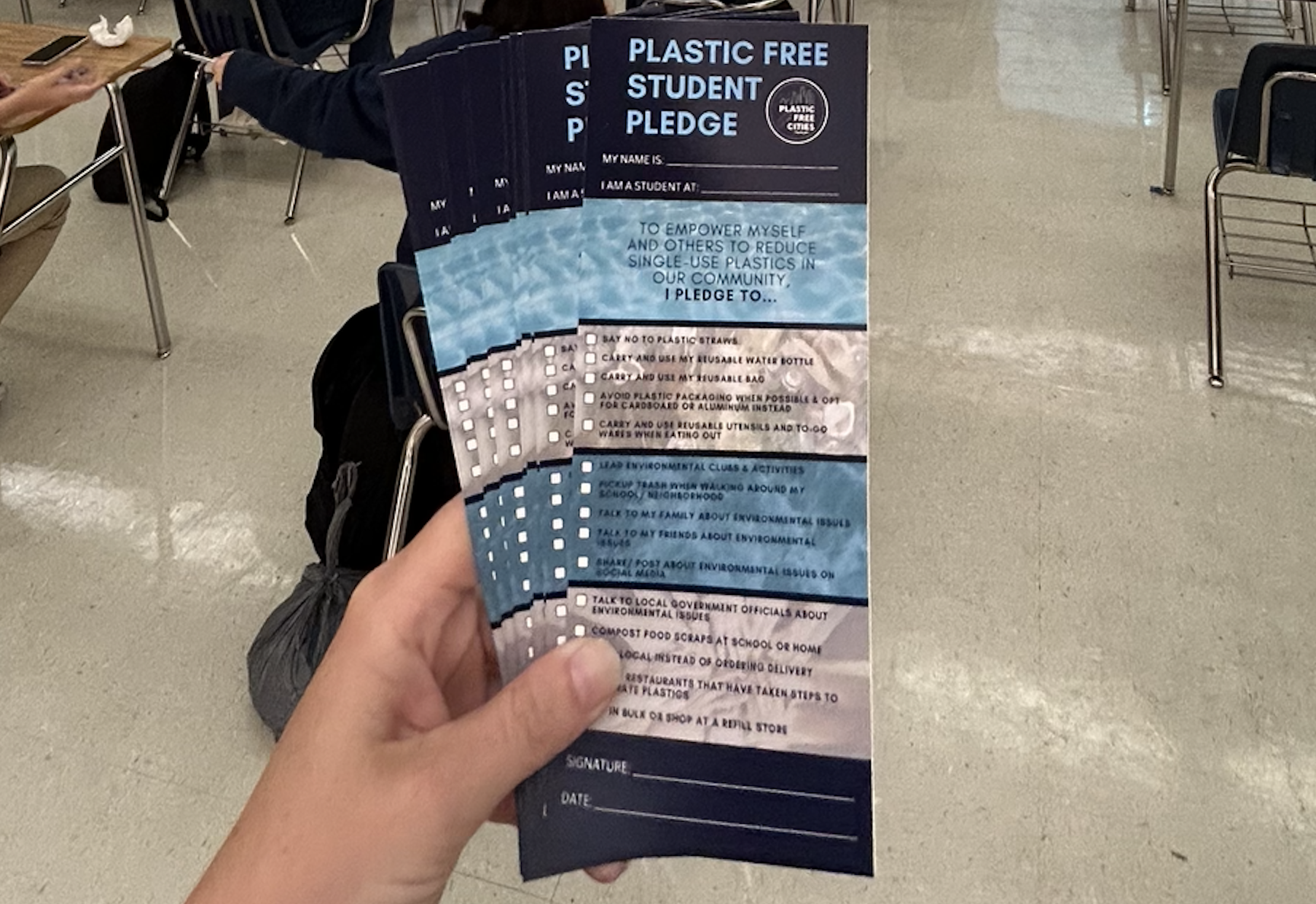
Student sustainability commitment pledge cards
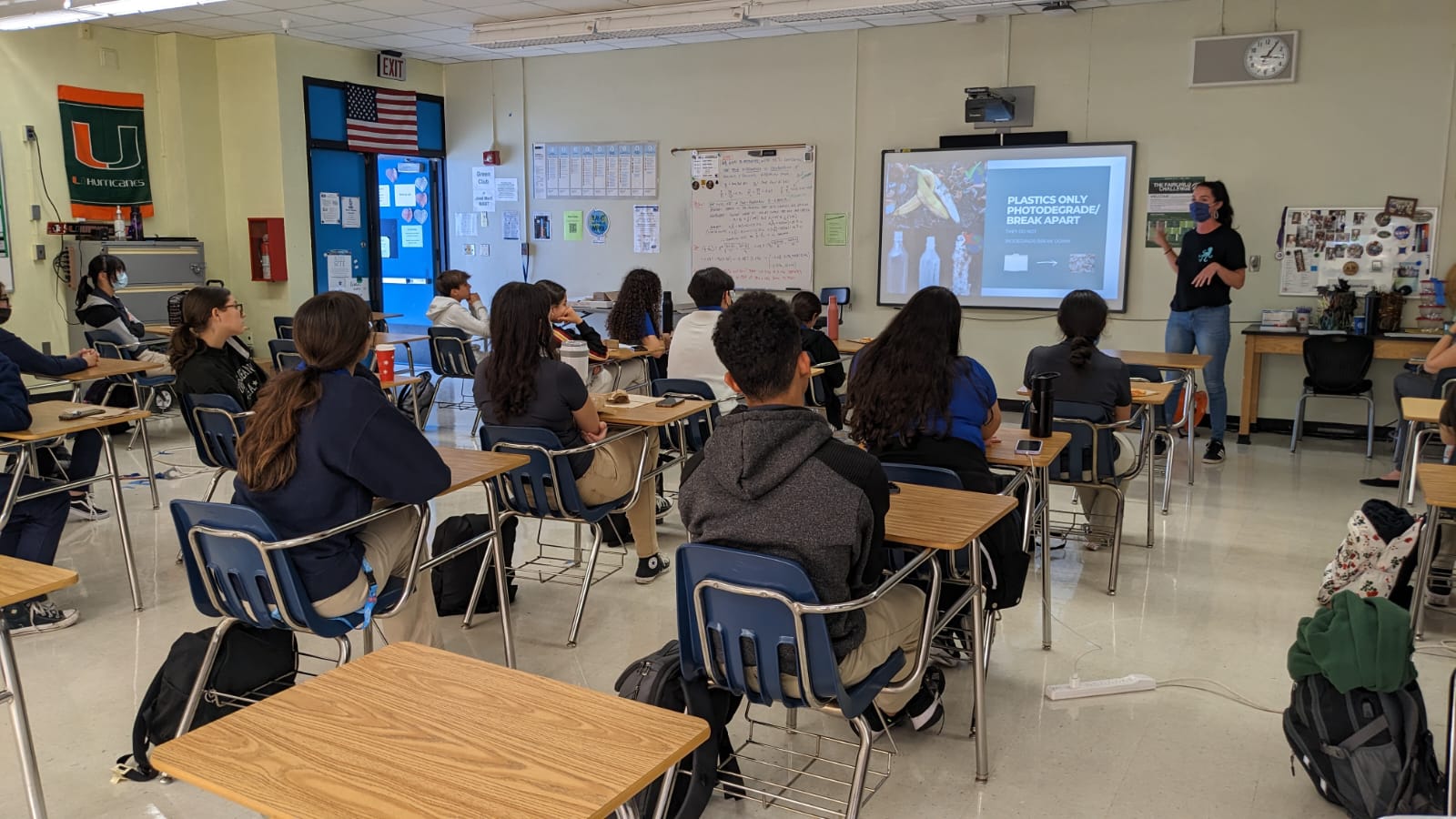
Introducing the students to plastic pollution
Training 2- Solutions to Plastic Pollution
During Training 2, the students learned about the many solutions to plastic pollution and the specific roles that individuals, businesses, and governments play in solving this problem. They learned about how governments have successfully regulated plastics in other parts of the United States, but how local governments in Florida are preempted from banning plastic containers (with the exception of a few loopholes that you can learn about here). We then introduced them to Plastic Free 305, Miami-Dade County’s business certification program that incentivizes local establishments to eliminate plastics, as a means of stopping plastic pollution where bans are currently not possible.
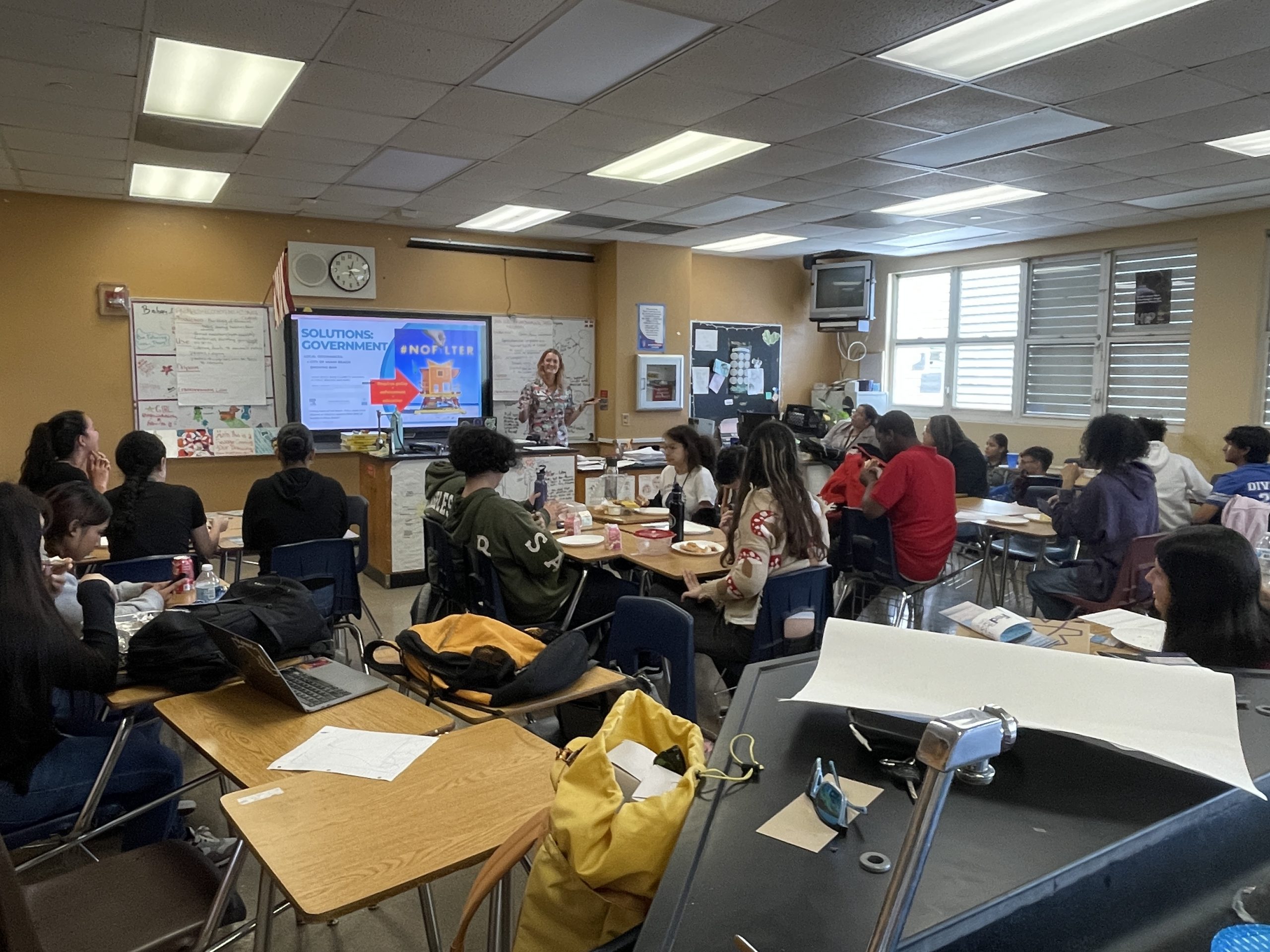
Discussing successful plastic bans like the cigarette ban on the City of Miami Beach
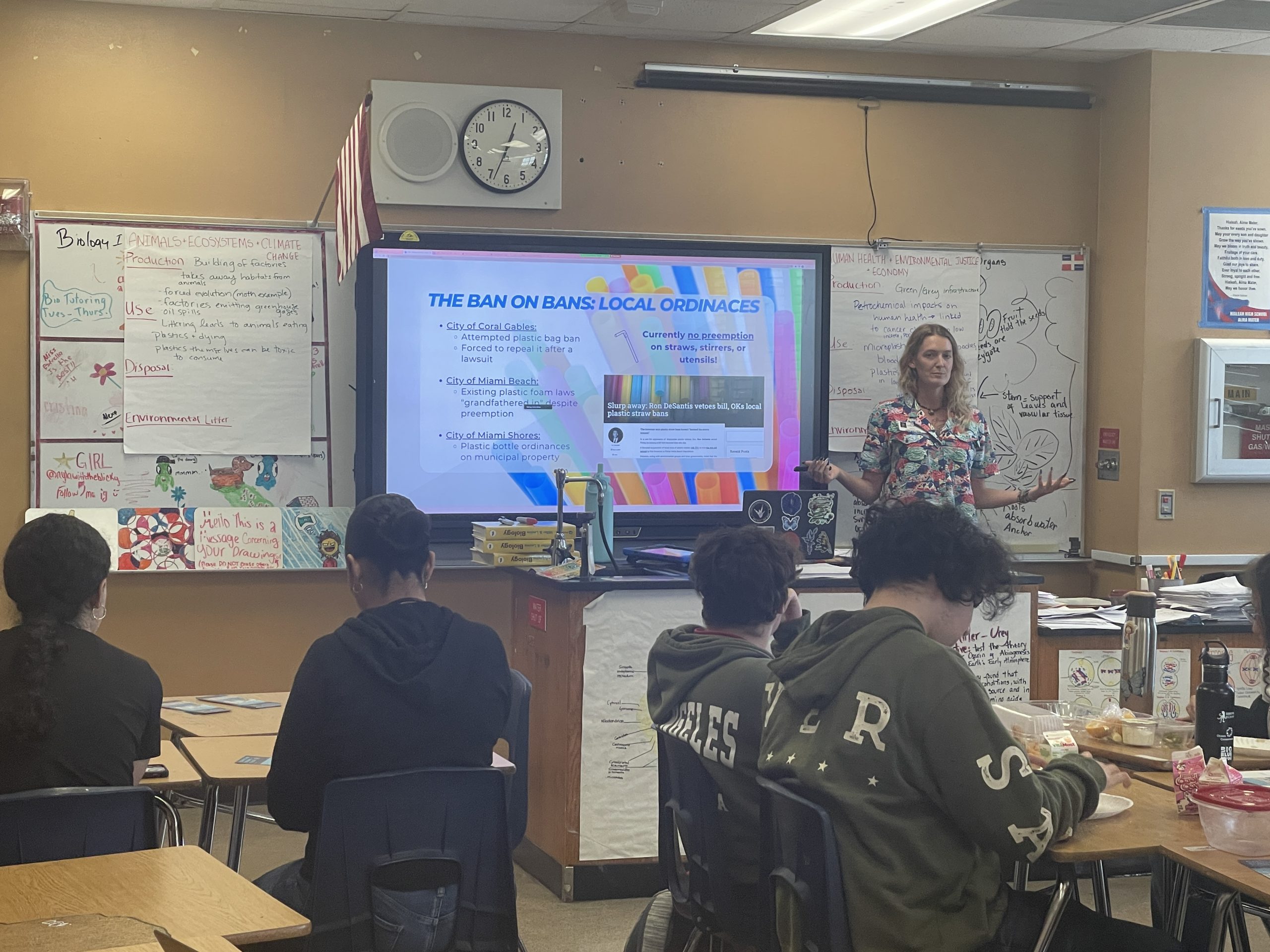
Discussing how Florida preemption laws restrict our ability to ban plastic containers
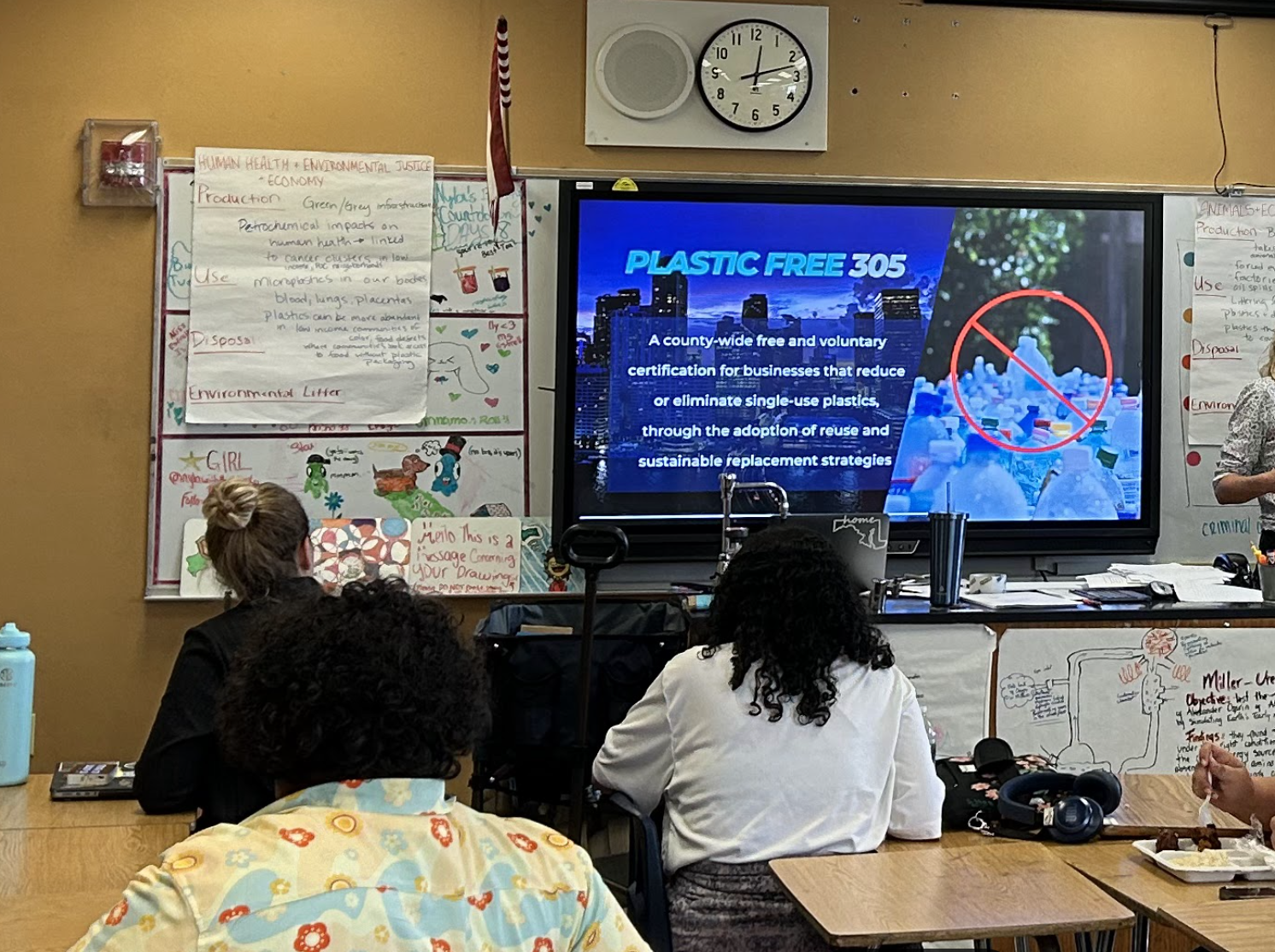
Introducing Plastic Free 305 as a business x government solution
Training 3- Sustainable Business Basics
During Training 3, the students learned all about the How and the Why businesses should operate more sustainably! We discussed how businesses save money by switching to reusables and introduced them to our Reusables Calculator, where business owners can calculate their annual savings from making the switch. They learned about the rising consumer demand for sustainability, and how businesses can gain new customers & marketing benefits by eliminating plastics. We finished the session by passing around sustainable disposable samples, including straws, cutlery, cups, carryout containers, and bags made from renewable, biodegradable sources such as wheat stems, sugar cane stalks, and sustainably-sourced paper. We also introduced the students to our Responsible Products Guide where business owners can browse a catalog of alternatives to plastic disposables.
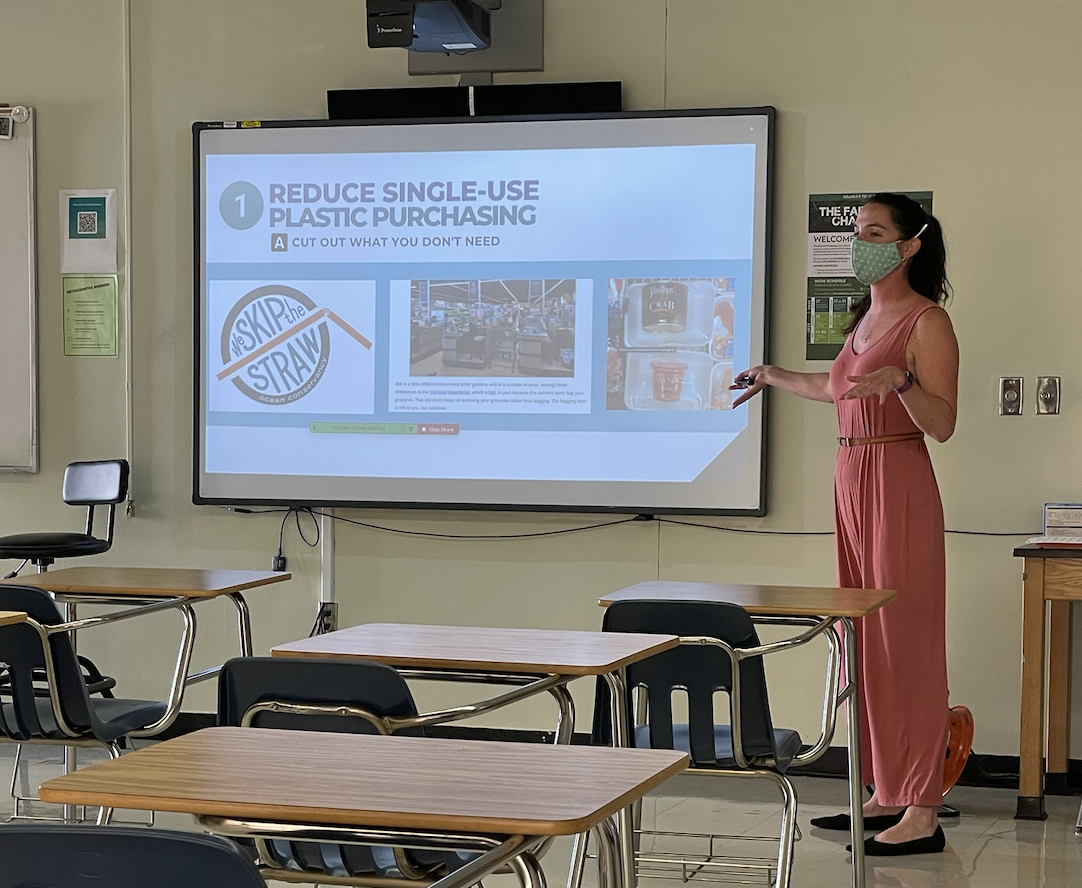
Walking the students through a crash course in sustainable business
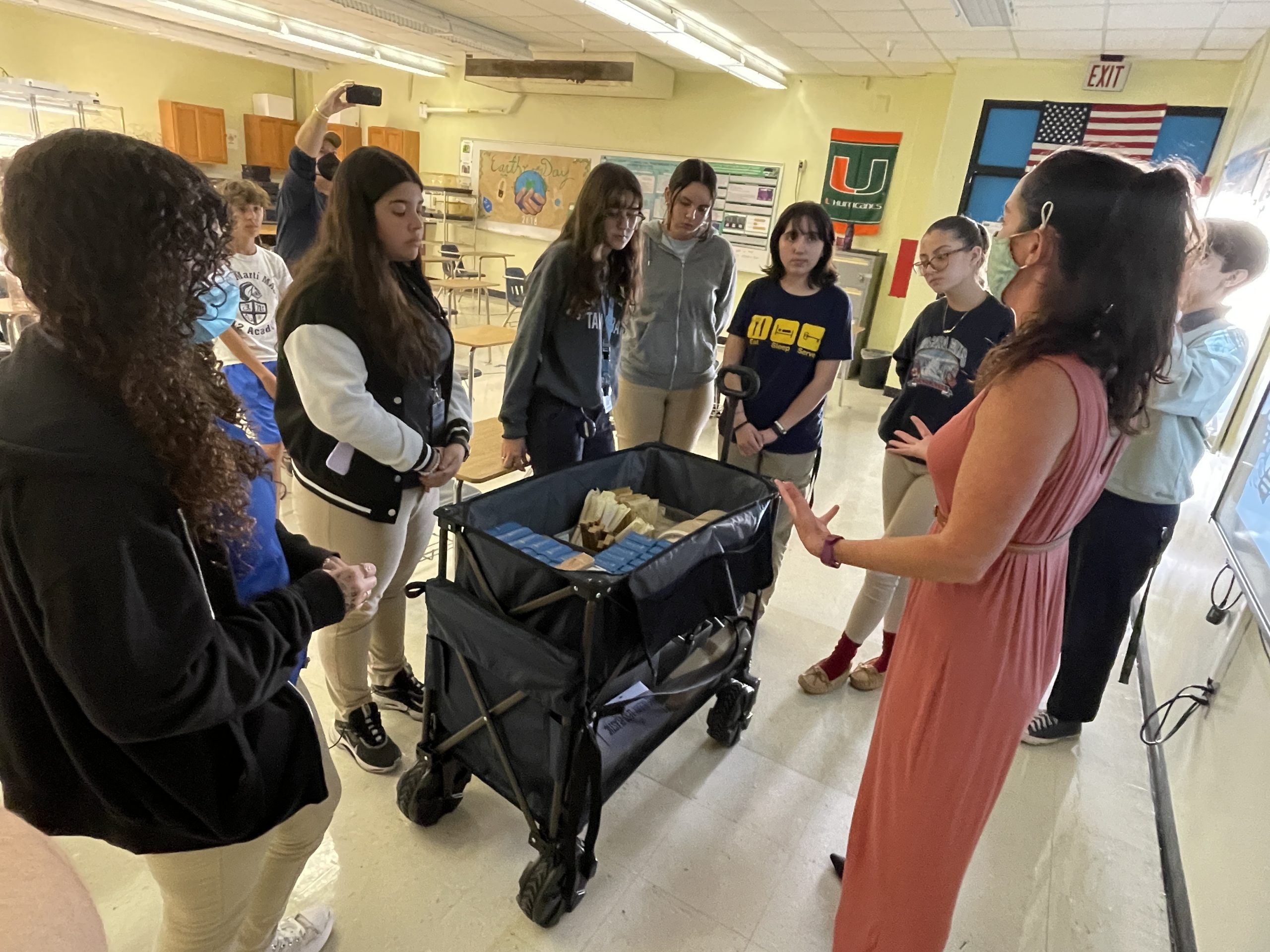
Showing students samples of sustainable disposables that they will be gifting to local businesses
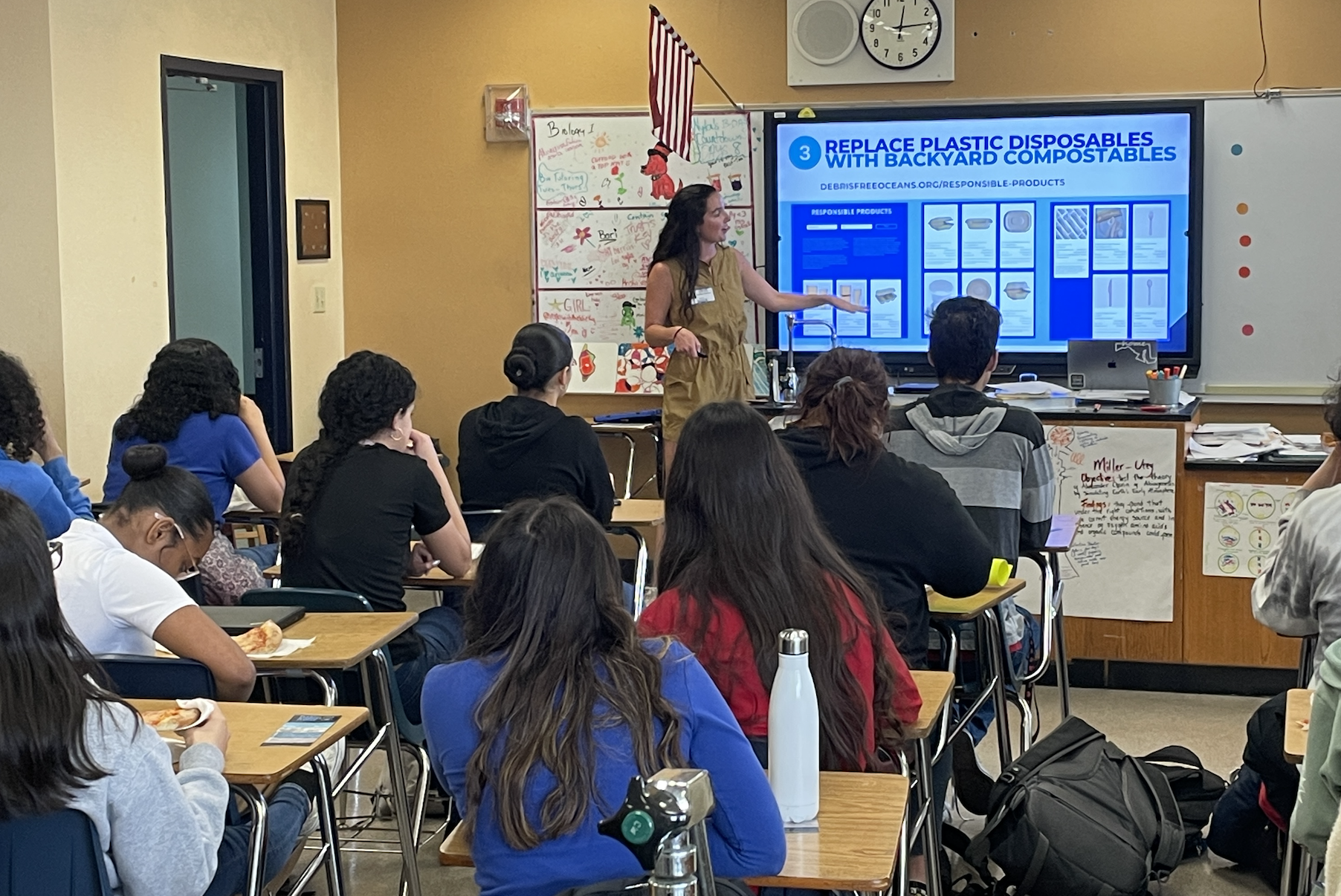
Showing the students DFO’s full online guide of responsible products
Training 4- Business Engagement and Empowerment
During Training 4, the students learned about the power of YOUth in influencing real change and various strategies on how to best engage local businesses. They learned about meeting people where they are and being respectful of business owners’ time. Then the students used iPads to explore the Plastics Survey that they will be conducting with businesses that work with us. We wrapped up the session with a lesson on how to craft an effective Elevator Pitch for the Plastic Free Cities program, and then passed out worksheets where they drafted their own personal pitches. We brought back the flip charts from Training 1 to help inspire their “Why’s” about why they are involved in this program.
Check out our Reel recap of training 4 here!
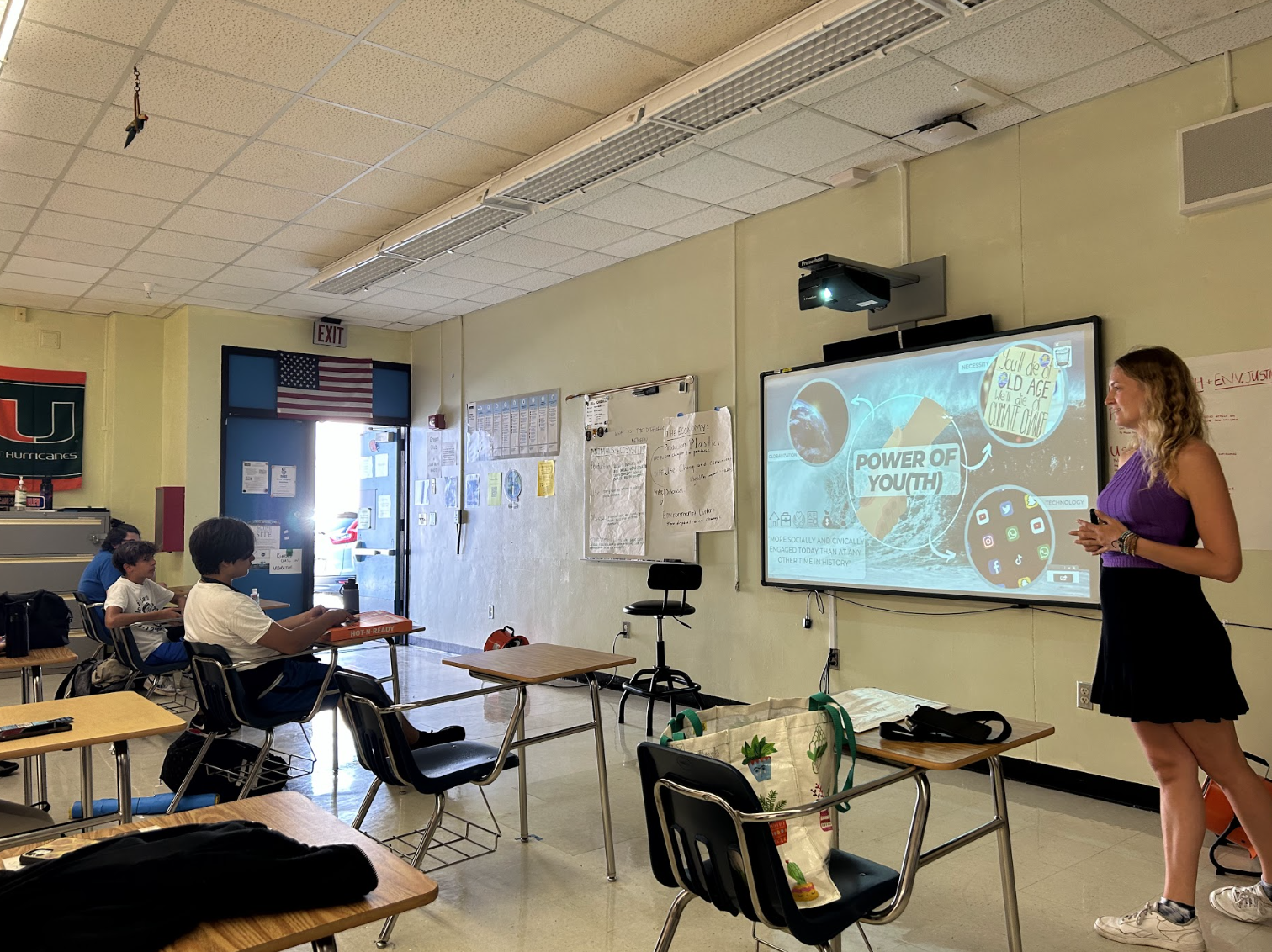
Highlighting the Power of YOUth
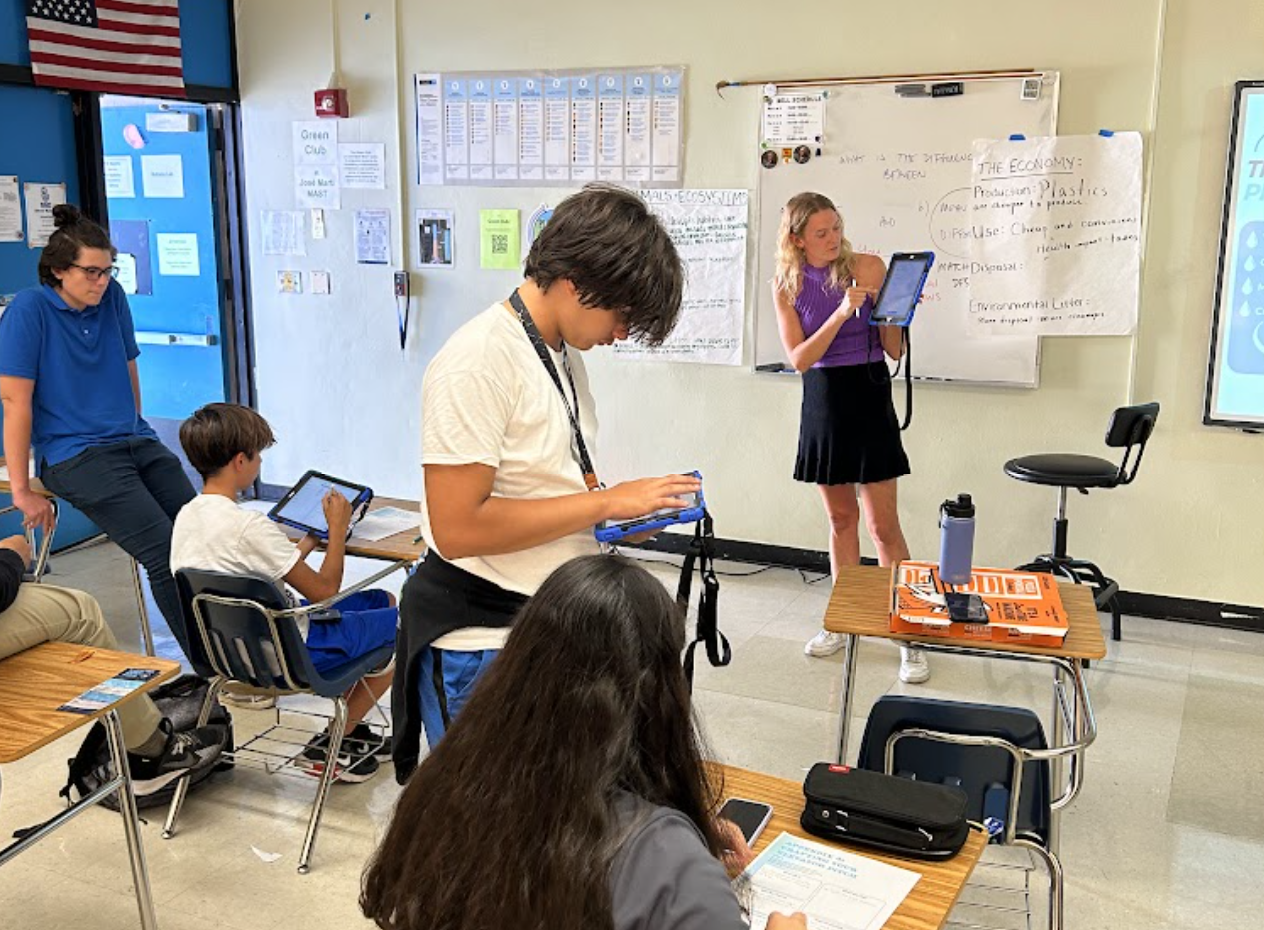
Testing out the Plastics Survey on iPads
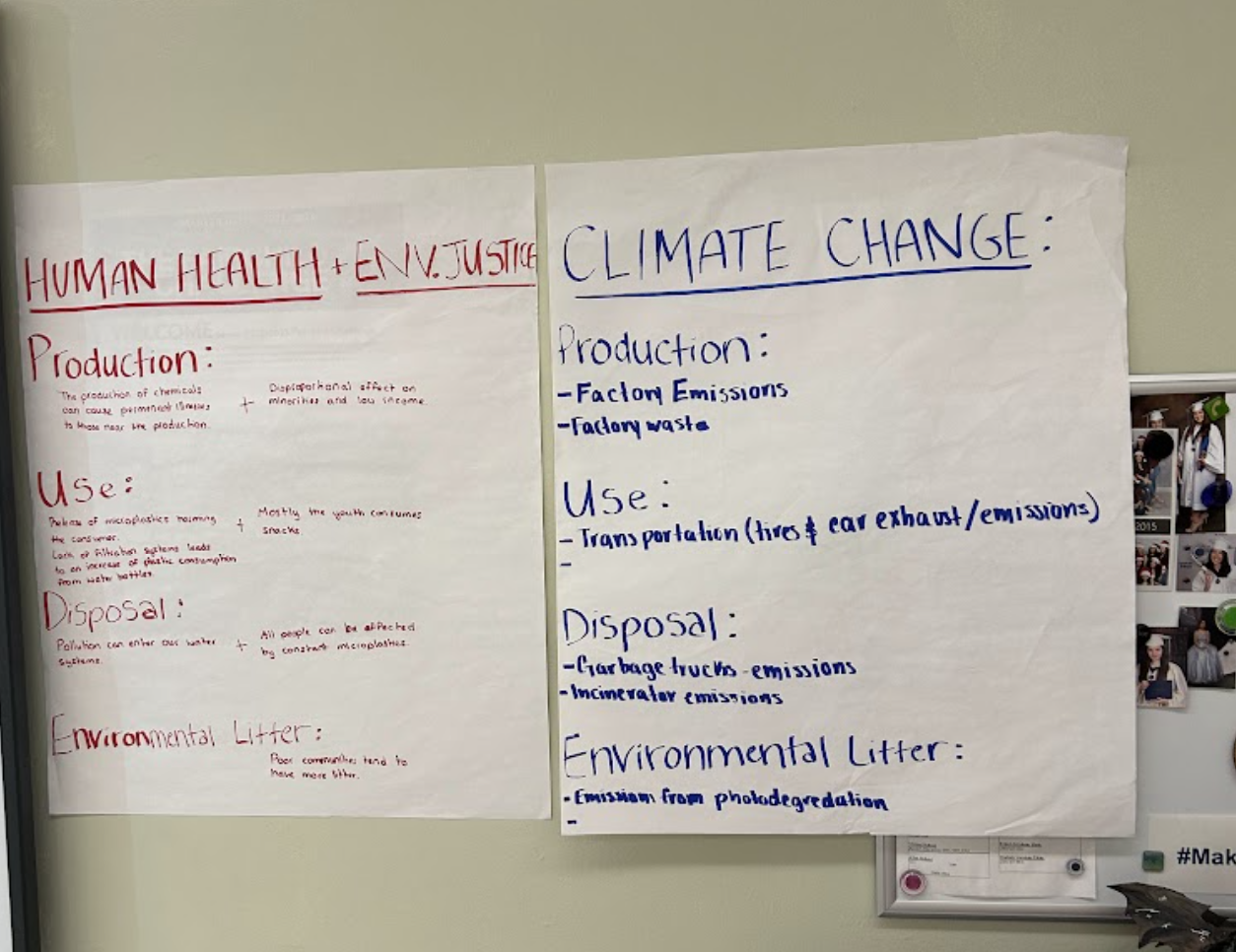
Revisiting plastic impact flip chats from training 1
Training 5- Time to Practice
Training 5 was dedicated to prepping & practicing for our business visits! First, our program facilitators from DFO, Ocean Conservancy, and Big Blue & You acted out some business visit scenarios then paused to ask the students what was and was not going well. Then we spent some time doing some rapid elevator pitch rotations, where the students would partner up with a classmate, have 45 seconds to introduce themselves and pitch our Plastic Free Cities program to their partner, then find a new partner to speak to. To close, our students acted out some example business visit scenarios, drawing pieces of paper from jars to set the scene- one jar had pieces of paper with different business types (ie restaurant, market, barber shop), and one had different potential business owner responses (ie not interested in the environment, too busy to talk right now).
You might be wondering about the wigs in the recap photos below- our facilitators thought it would be fun to put on wigs for the different roles we were acting out. When it was the students’ turns to do mock business visit scenarios, they wanted to use some wigs to get into character as well! This made for quite the hilarious and memorable experience.
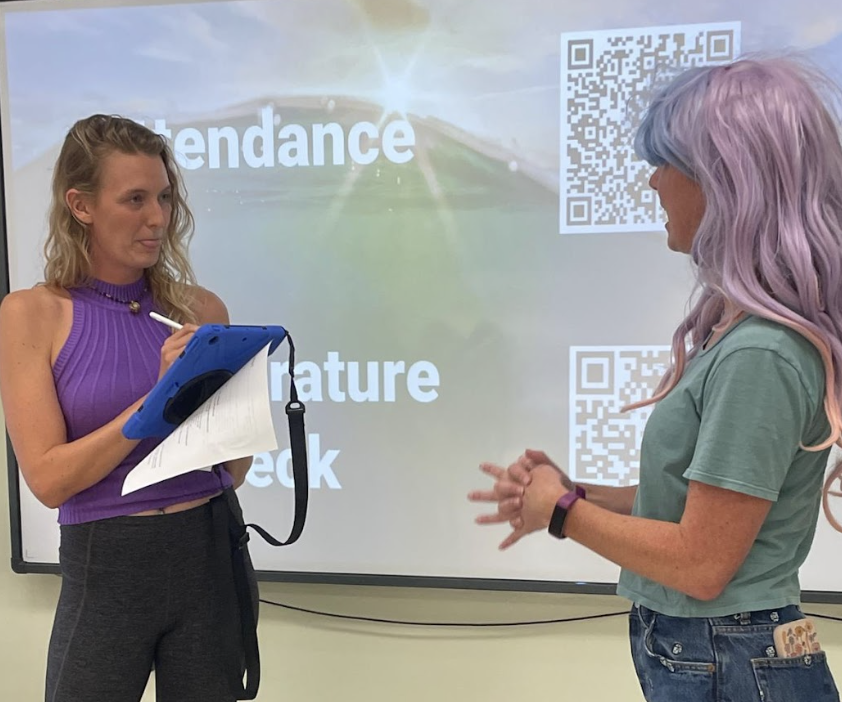
PFC facilitators acting out an example business visit and plastic survey
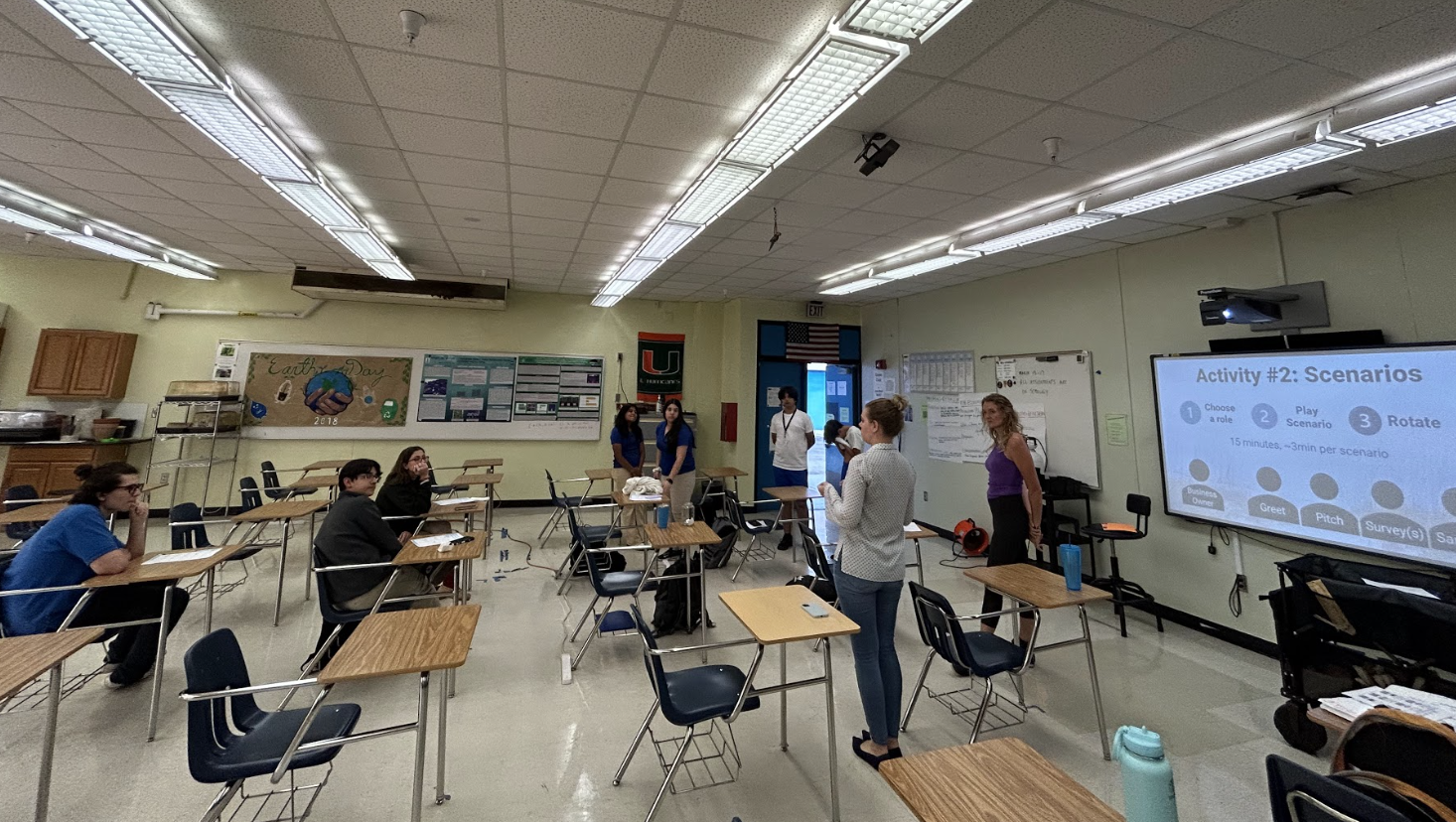
Discussing what went well and what went wrong in example business visit
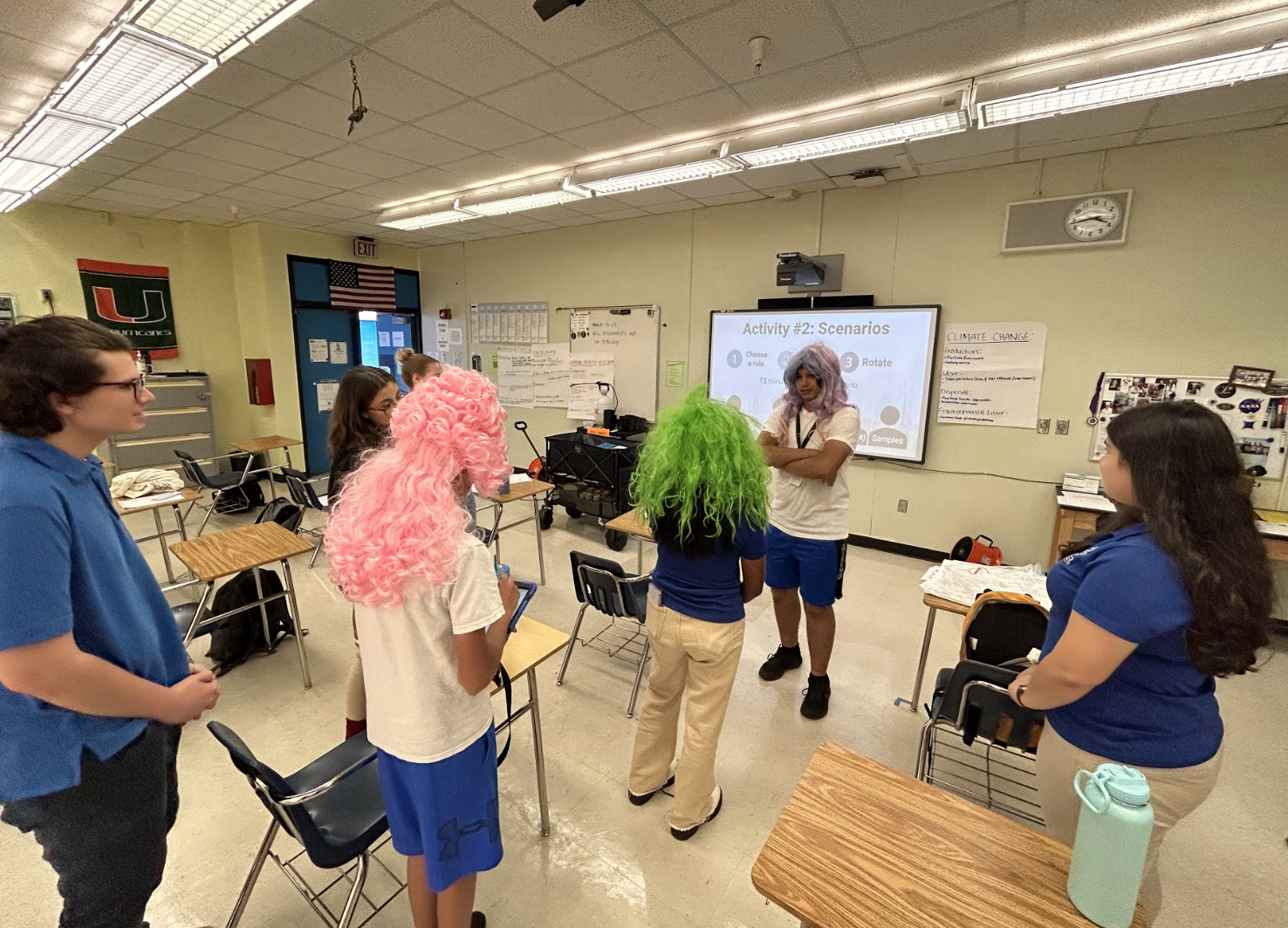
Students acting out an example business visit
Program Impact
We are using surveys to evaluate the social impact of Plastic Free Cities throughout the entire program, and have distributed pre-program and mid-program surveys to this first cohort.
Prior to the workshops, 80% of students reported that they either did not know anything (Likert of 1) or only knew 1-2 things about sustainable business (Likert of 2). After the workshops, 75% of students reported that they knew several facts (Likert of 3) or a lot of information (Likert of 4) about sustainable business, or said they felt like experts on the topic (Likert of 5).
We also also asked them to select their comfort level with public speaking from 1 to 5, 1 being least comfortable. Prior to the workshops, 68% of students selected a comfort level of 3 or higher, and after the workshops, 88% of students selected 3 or higher.
Excitingly, 100% of students have expressed interest in staying involved in this program beyond our semester in Hialeah through serving as mentors for future cohorts! And 100% of students have reported speaking to people outside of the program about Plastic Free Cities (25% of students reporting that they have spoken to 5+ people about it!) highlighting the reach of the program beyond the cohort that we are directly working with.
Next Steps
Over the next 3 weeks we are so excited to begin canvassing Hialeah businesses with our trained consultants! Our facilitators will be overseeing 6 afternoons of business visits, 3 per school. We have distributed flyers and sent out emails to businesses nearby each school to let them know about this exciting opportunity. Two businesses have scheduled meetings with our students – A lo Cubano Tropical and El Riconcito Peruano – and several others have expressed interest in participating. We can’t wait to update you on progress on this front in a few weeks! Stay tuned.
Upcoming Events
As part of this program, our students are also helping to plan sustainability events with their community! On Saturday, April 15th 9am-12pm, Hialeah Senior High students will be helping host a Baynanza Cleanup at Amelia Earhart Park, and on Thursday April 20th at 2-5pm, Jose Marti Mast students will be helping us co-host an Earth Day celebration at their campus. Email Maddie@debrisfreeoceans.org and sign up for the Debris Free Oceans newsletter here to be notified of these events.


